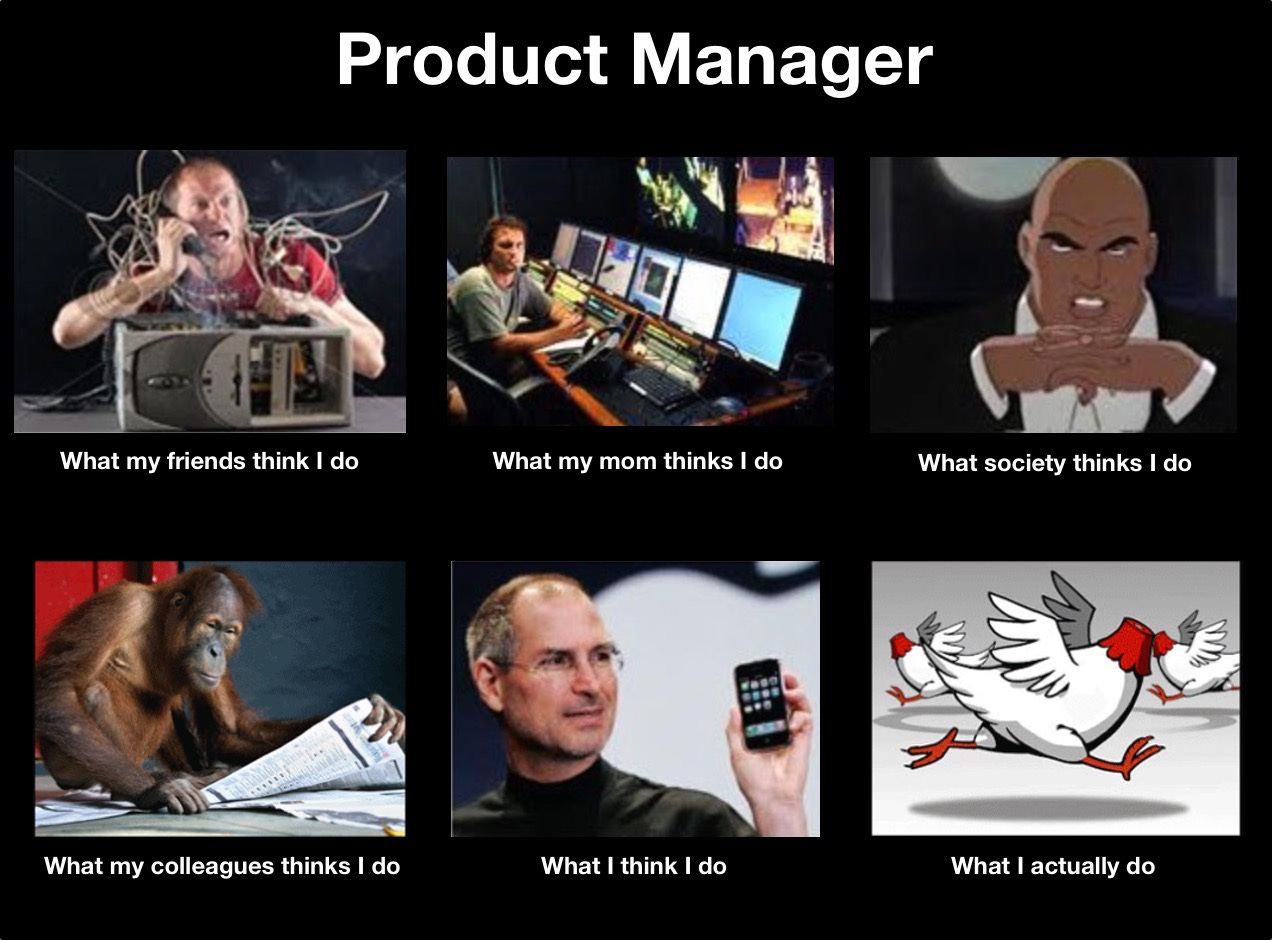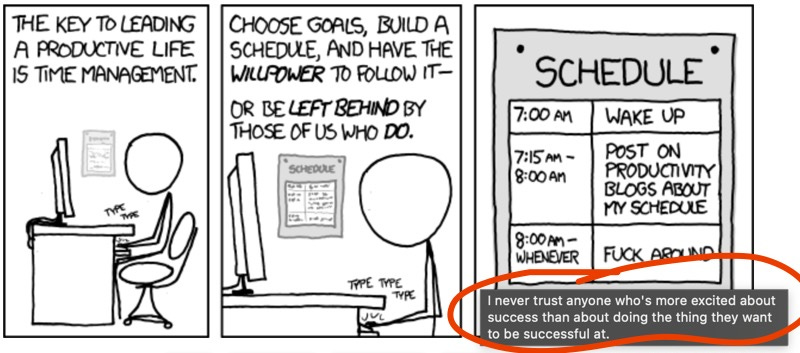Who should you hire as your first PM? What are some common pitfalls? This post poses some questions and home truths for you to consider. Conversely, if you are joining a startup as the first product manager, getting clarity on some of these questions will be important, otherwise the process of discovery may be painful if you are the subject of said discovery.
In hiring the first product manager, you are not only hiring one person into one role but also laying the groundwork for one of the most important functions at a product company. Too many early attempts at hiring for product management end up as a false start.
No Grand Unified Theory of Product Management
If you bump into a theoretical physicist at a cocktail party, be sure to ask them if they’re any closer to finding the Grand Unified Theory yet — you’ll be sure to have an entertaining evening. The Grand Unifying Theory, as the name suggests, is meant to be a single simple theory that can explain all the physical forces — gravity, the strong force, the weak force and the electronic force. Currently, different theories explain different forces but no single theory ties them together. If you remember the Large Hadron Collider that created news everywhere when it started operating in the mid aughts, its purpose to run experiments and find new particles that could lead us to this Grand Unified Theory. It can create dark matter, and one point people were afraid it might create a black hole that would swallow us all. Someone even created this website: HasTheLargeHadronColliderDestroyedTheWorldYet.com
Sadly, no one is doing similar experiments with product management and we are far away from having a Grand Unified Theory that could neatly explain all the things product management is about.
Which brings us back to the problem we were pondering about before our mini physics lesson: if we don’t fully understand what product management should be in our startup, how do we hire our first product manager.
Let me walk you through the questions you should be asking yourself to hopefully arrive at the right answer.
#1: On the role
There is no such thing as “full stack product management”. The need to hire a PM should stem from a specific need on the team. Has some co-ordination overhead increased? Do you, the co-founder and de facto first PM, need someone to take on certain product problems, perhaps own a specific part of the product? Or be the one person responsible for end-end execution? Et cetera.
You should be crystal clear on the problems you need this person to solve in the first 6-12 months, and define the role around those, understanding that the role will change unpredictably over time. Not only will this guide your candidate evaluation but also help you set expectations with candidates.
A common anti-pattern is borrowing verbiage for the PM job description from listings of other companies because you’re in a hurry to unblock the recruiter to sourcing. Before you know it, this has been adopted into the hiring rubric and, from there, into the performance evaluation criteria. This is completely backwards.
#2: On a head of product
A valid question at this stage is whether you should hire a head of product and let them figure the rest out.
First things first: you do not stop owning the product strategy and vision at this stage, even if you hire a head of product. A head of product can build a product management team and function, run product execution, but it is not right to delegate the direction of the product outside the founding team at an early stage. Nikhyl Singhal (VP Product at Facebook, ex CPO of Credit Karma) has an excellent post on hiring a head of product:
Tip #6: Own the fact that you own the product strategy Product leads are there to establish and scale the product management function. You may want to assist with strategy, especially regarding the narrative and implementation of the company vision. But given your close connection to the corporate vision and product strategy, and the success and value of the company, it’s unlikely that you will trust another executive to determine the product strategy.
Secondly, the head of product role has a very wide sphere of influence — the product is the center of gravity of pretty much everything happening in the company early on. Before placing a person in that role, you need some sense of how the organization will shape up. Will you want to have general managers overseeing business units? Where will design or support or product partnerships sit? Hiring a head of product too early can impose inadvertent constraints in your org design later.
If you do need a PM manager, could you hire them as a Director or Lead rather than a Head of Product?
The best reason I’ve seen for hiring a head of product early is if you’d like to have someone who can be a partner to the founders on many different things and be actively involved in building the company. In such cases, the order of things are inverted — you have found the right person and you are creating a role for them.
#3: On the title
Many people are attracted to smaller companies to get more responsibility and a bigger title. And that can be a fair trade — as a small company, your differentiator to candidates is that you offer more responsibility and autonomy and can offer bigger titles. However, titles have become a poor incentive mechanism, and Gokul Rajaram has a great post on this:
If you are a CEO thinking about hiring your first people manager and wondering what title to give them, don’t. Avoid the heartache, pain and future organizational challenges that come from — and with — titles. There might come a time when you absolutely, positively need to give out your first Director or VP title, but you should defer that instance as long as possible. You have more important things to worry about. Go build a titleless company. Your people, your company, your investors will thank you for it.
Even foregoing a title ladder, it can be tempting to offer a head of product or head of some area to your first PM. If it is not warranted by the role but you are considering this simply to close the hire, I’ll leave you with this XKCD comic:
#4: On seniority and experience
Should you hire someone earlier in their career? Or a more seasoned PM who has been there done that and can execute autonomously? An IC? Or a manager who could also help grow and manage a small team when you do need to hire more PMs?
This is a tricky question as there is no wrong answer, only a number of tradeoffs to be aware of.
Often, it is quicker to hire someone internally — an enterprising engineer or account manager who wants to move into Product Management and already understands the business, the product and has the trust of the team. But plan to have to actively coach them or find them external coaches. Product Management is a leadership role by default, and very different from what they would have been used to, especially if they are early-career.
An experienced product manager will take more time to hire. If you can afford to let the burning fires burn until you find one, it is better to do so. An experience PM can bring in best practices that up-levels the execution of the entire team. On the flip side, they can also impose practices out of habit that may not fit in to what your organization needs, so it is important to keep an eye out for that.
Hiring early career candidates externally comes up with more uncertainty and takes just as much time, more so because PM interviewing can be a very imprecise process.
Hiring a PM manager as your first PM can make sense if you need them to hire and build a team soon. Otherwise they may not want to or may be rusty at being on the frontlines. An ancillary benefit of hiring a manager early on is that they can manage other teams like design or support or product partnerships until those teams are ready to scale.
#5: The PM Function
The first PM is coming in to help with specific product or execution problems. They are going to have their hands full with this. As they operate, they are implicitly laying the blueprint for how product management at the company will work — the teams around them will set expectations and create organizational interfaces with product management based on this person, whether you like it or not!
Odds are, unless you’ve hired a head of product to build out the function, no one is thinking about the identity of product management in your company. But that identity is being formed, regardless! Product management is going to be central to your product and business in the future, so it is worth carving out some time every so often to understand how it is evolving and setting in place safeguards or best practices you would like early PMs to inculcate.
At an early stage, you want to eschew many formal processes that form the rituals of product management. But simply things like making sure the one PM is attending all the QBRs for important customers, or having an “Acting PM” nominated for every feature that is responsible for decisions that a PM would make, getting into the habit of writing certain product docs even if an engineer or a designer is writing them can help create scaffolding for a product culture. It is important to set a baseline for good product management for the other functions.
#6: Do you really need a PM right now?
Ask yourself if a product manager is who you need right now? It is easy to look at bigger companies, see all the things that product management does and wish that for yourself. But, as I mentioned above, there is no such thing as a “full stack product manager” and no Grand Unified Theory of product management. If it is execution loopholes to fix, perhaps a project manager (titles vary) might be a better fit. If there are a some special product-related project that have come up, it may be better to hire a Chief of Staff who could take on a wider ranging set of problems going forward (or even become your first PM later!). If there are other product operations or analytical problems at hand, another option might be a BizOps person.
Consumer-facing products tend to need PMs sooner, especially on growth, than B2B SaaS products; developer-facing products can stretch even longer without a PM. The more clarity you have on the demands of the role in your company and for your product before hiring a PM, the better.
If you do decide a PM is who you need on the team, these other functions can help you stretch your runway to give you more time to hire the right person. Product Management is a glue function, and many adjacent functions can step in and provide serious leverage with different aspects, as long as a founder is overseeing everything about the product.
To conclude: Product Management is responsible for the single most important output of your company in the early days, and it being a loosely defined job doesn’t help. Be as specific about and as close to the role of product management as you can, and have the highest bar for hiring.



